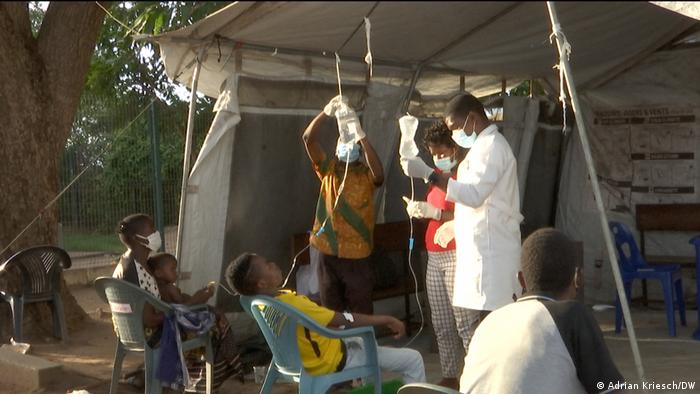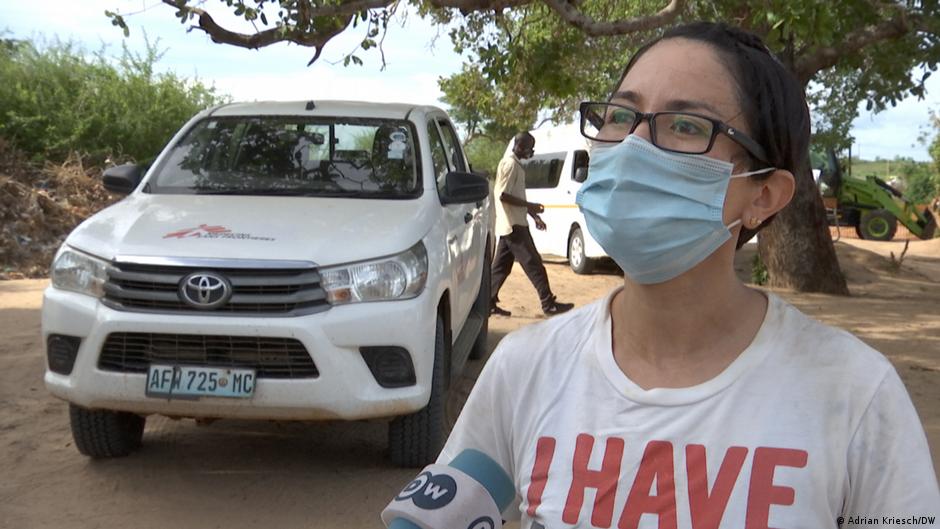JICA Mozambique delegation visits FCM in Campinas, Brazil, to discuss cooperation in medical ...
Cabo Delgado: Cholera deaths in January and February were as many as in the whole of last year – DW

Photo: DW
Terrorist attacks have caused doctors to leave areas of disease incidence. Rural areas have limited access to the cholera vaccine, which only immunizes for six months. And, due to poor housing, cholera also threatens displaced people.
Completely exhausted, a young woman lies on the floor at the entrance to the Metuge Health Centre, not far from Pemba, Cabo Delgado, northern Mozambique. The doctors administer serum while she waits for a free bed.
According to the director of the unit, Atanásio Romão Magunga, most of the patients with cholera symptoms arrive for treatment late in the course of the disease. Cholera, which causes severe diarrhoea, is treatable, but it can cause death from dehydration if it is not promptly combated.
Caused, in large part, by eating contaminated food and water, cholera is spreading in the region, especially in refugee camps. Thousands of people fleeing the terrorist attacks have found shelter here. The population of Metuge, near the provincial capital of Pemba, has doubled in recent months.
Avoiding the health centre
According to the organisation Médecins Sans Frontières (MSF), about 90% of those displaced were received by family members in the region. Only 10% live in refugee camps, often in inhumane conditions.
“We are afraid that the situation is getting worse, even while it is hidden. Many people do not go to the health centres. We are not sure why. In part, they believe that if they go to the health centre, they will be infected with cholera there,” explains Maria Chavez, from MSF.
In rural areas, the homes of local health workers have even been destroyed, when they end up being seen by the population as responsible for cholera cases.
The disease reappeared in northern Mozambique more recently, after Cyclones Idai and Kenneth, in 2019. The Ministry of Health launched a cholera vaccination campaign, but one dose lasts only six months. Many rural areas in Cabo Delgado have had limited access to the vaccine.
Thousands of cases

There are no official figures, but the United Nations Office for the Coordination of Humanitarian Affairs counted 55 deaths in 5,000 cholera cases in northern Mozambique by February 24, especially in Mature , where most of the accommodation camps are located.
“There is a lot of cholera. People are afraid of dying. This year, in January and February, we already have as many deaths as we did last year, maybe even more,” Doctor Chavez says.
Most people who fall ill in the region die of malaria, fever or diarrhoea. This is now joined by Covid-19, but outside Pemba, there is almost no chance of testing. Even in the provincial capital, obtaining test results takes almost a week. In many places in the north, there are no clinics.
Macomia without Doctors Without Borders
Doctors Without Borders recently had to withdraw from Macomia, for example, because of the attacks
“There was no forecast that cholera will break out, because we are already in the outbreak. Since June, we have recorded cases of diarrhoea and we have had a peak. We are controlling diarrhoea. At the district level, we had seven cholera patients and a total of six deaths out of a total of 1,527 cases,” Magunga says.
The director asserts that, at the Metuge health centre at least, the situation of diarrhoeal diseases is under control.












Leave a Reply
Be the First to Comment!
You must be logged in to post a comment.
You must be logged in to post a comment.